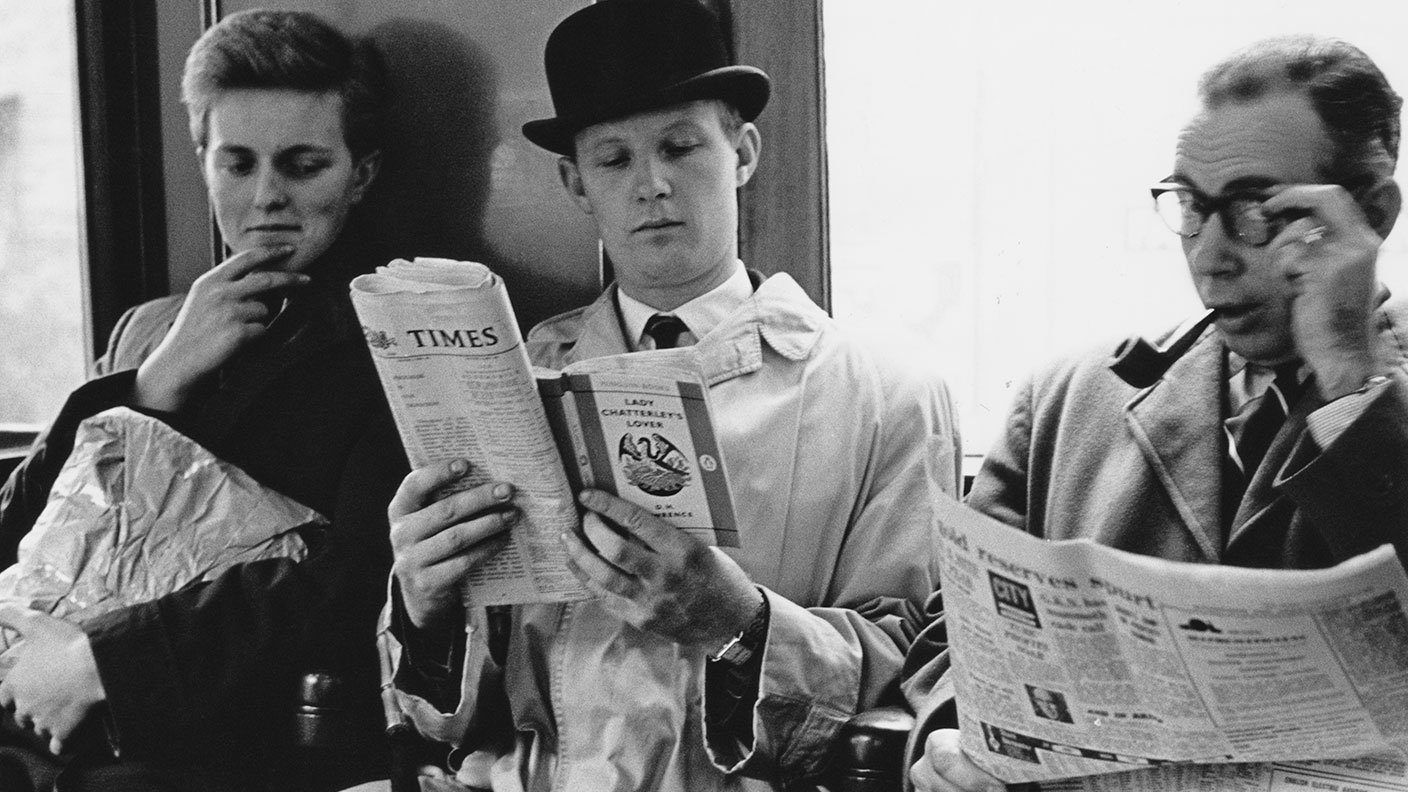
Get the latest financial news, insights and expert analysis from our award-winning MoneyWeek team, to help you understand what really matters when it comes to your finances.
You are now subscribed
Your newsletter sign-up was successful
Want to add more newsletters?

Twice daily
MoneyWeek
Get the latest financial news, insights and expert analysis from our award-winning MoneyWeek team, to help you understand what really matters when it comes to your finances.

Four times a week
Look After My Bills
Sign up to our free money-saving newsletter, filled with the latest news and expert advice to help you find the best tips and deals for managing your bills. Start saving today!
From Queen Victoria, right through the first half of the 20th century, Britain was a famously prudish and sexually repressed nation. Then came the Swinging Sixties, and it all flopped out into the open, with naked flesh and free love everywhere.
And one of the most pivotal moments in peeling away the petticoats of Victorian morality came on this day in 1960 when a jury came to the verdict that Lady Chatterley's Lover was not obscene.
DH Lawrence's racy classic was first published privately in Florence in 1928. An edited version was published in the UK in 1932, but it was not until 16 August 1960 that Penguin published an unexpurgated version.
MoneyWeek
Subscribe to MoneyWeek today and get your first six magazine issues absolutely FREE

Sign up to Money Morning
Don't miss the latest investment and personal finances news, market analysis, plus money-saving tips with our free twice-daily newsletter
Don't miss the latest investment and personal finances news, market analysis, plus money-saving tips with our free twice-daily newsletter
Unfortunately for Penguin, it was an offence to publish material that was likely to "deprave and corrupt". The law did, however, make an exception if the published work was of artistic merit.
On 25 August, Penguin received a summons, and on Friday, 21 October, the case of R v Penguin Books opened. The nine men and three women of the jury were given copies of the book, and asked to read it – but were forbidden from taking it out of the jury room.
The prosecuting counsel, Mervyn Griffith-Jones, who called no witnesses for the prosecution, selected passages from the book to illustrate its depravity, that sex was at its "core and heart", and that it had no literary merit at all. "Is it a book", he asked to amused titters, "that you would wish your wife or even your servants to read?"
The Bishop of Woolwich meanwhile, one of 35 witnesses for the defence, testified that it was "a book all Christians should read".
The jury agreed. It took them three hours to return a unanimous verdict of not guilty to a chorus of cheers from the public gallery. The second edition of the book carried a dedication "to the twelve jurors, three women and nine men, who returned a verdict of 'not guilty' and thus made DH Lawrence's last novel available for the first time to the public in the United Kingdom".
Get the latest financial news, insights and expert analysis from our award-winning MoneyWeek team, to help you understand what really matters when it comes to your finances.

-
 Should you buy an active ETF?
Should you buy an active ETF?ETFs are often mischaracterised as passive products, but they can be a convenient way to add active management to your portfolio
-
 Power up your pension before 5 April – easy ways to save before the tax year end
Power up your pension before 5 April – easy ways to save before the tax year endWith the end of the tax year looming, pension savers currently have a window to review and maximise what’s going into their retirement funds – we look at how
-
 31 August 1957: the Federation of Malaya declares independence from the UK
31 August 1957: the Federation of Malaya declares independence from the UKFeatures On this day in 1957, after ten years of preparation, the Federation of Malaya became an independent nation.
-
 13 April 1960: the first satellite navigation system is launched
13 April 1960: the first satellite navigation system is launchedFeatures On this day in 1960, Nasa sent the Transit 1B satellite into orbit to provide positioning for the US Navy’s fleet of Polaris ballistic missile submarines.
-
 9 April 1838: National Gallery opens in Trafalgar Square
9 April 1838: National Gallery opens in Trafalgar SquareFeatures On this day in 1838, William Wilkins’ new National Gallery building in Trafalgar Square opened to the public.
-
3 March 1962: British Antarctic Territory is created
Features On this day in 1962, Britain formed the British Antarctic Territory administered from the Falkland Islands.
-
10 March 2000: the dotcom bubble peaks
Features Tech mania fanned by the dawning of the internet age inflated the dotcom bubble to maximum extent, on this day in 2000.
-
9 March 1776: Adam Smith publishes 'The Wealth of Nations'
Features On this day in 1776, Adam Smith, the “father of modern economics”, published his hugely influential book The Wealth of Nations.
-
 8 March 1817: the New York Stock Exchange is formed
8 March 1817: the New York Stock Exchange is formedFeatures On this day in 1817, a group of brokers moved out of a New York coffee house to form what would become the biggest stock exchange in the world.
-
7 March 1969: Queen Elizabeth II officially opens the Victoria Line
Features On this day in 1969, Queen Elizabeth II took only her second trip on the tube to officially open the underground’s newest line – the Victoria Line.
